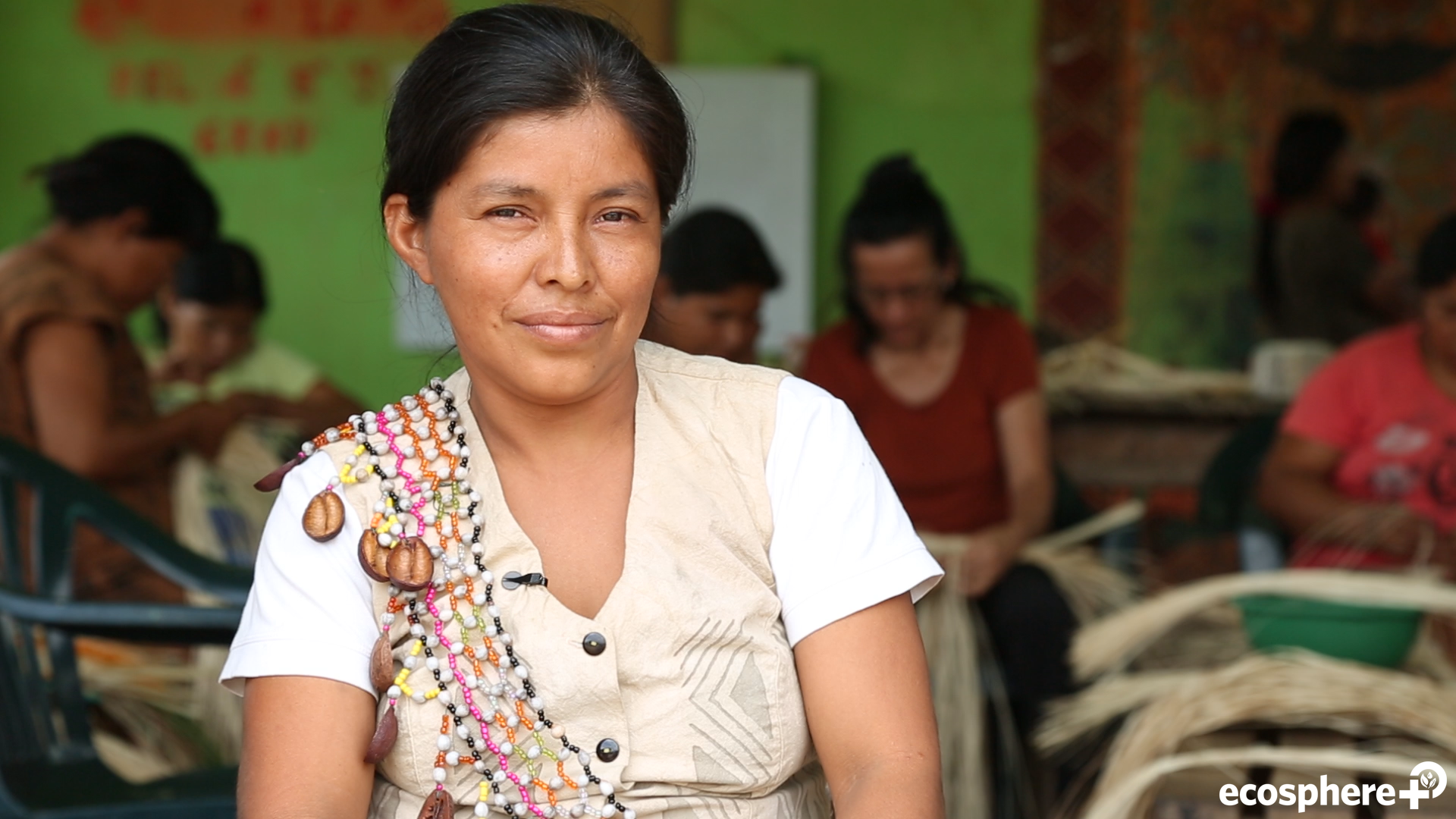Meet Clementina Estrella Odicio, local artisan and member of the Yamino Native Community, part of the Cordillera Azul National Park REDD+ project. Cordillera Azul is situated in Peru’s high forest between the Andes and the Amazon Basin, a region of mountainous cloud forests and lush Amazonian lowlands. The park spans nearly 1.6 million hectares and lies within a region home to over 500 rural villages and indigenous communities. Clementina works at the Yamino Native Community’s Artisan Hub, one of the many sustainable businesses supported by the Cordillera Azul National Park project, and by CIMA, our implementation partner on the ground.
We sat down with Clementina to learn a bit more about what it means to be a part of the project, and why her work is important.
Interviewer: What kind of services does the national park offer you?
Clementina: Well, first of all, the park gives us all the materials we need to work and support our community. The animals, the trees, all the things that we find in the forest are important to us and to our children. As a native community, we depend on the park for the resources we need to work our crafts, such as the bark from the trees. We take care of the forest for our children, so that they will have what we have. This is how we protect our community.
Interviewer: Why do you think the Cordillera Azul National Park is a special place?
Clementina: Well, for me this place is special because of the animals and the medicinal plants we find here. When we are sick, we use these plants to cure our families. The forest is important because it provides us with the pure air we breathe, and because it gives us water.
Interviewer: What kind of support has CIMA given to you?
Clementina: Well, CIMA supports us in a number of ways, such as with a variety of management issues like preparing documentation or reaching agreements with other institutions. But there are many ways CIMA supports us.
Interviewer: Tell us a little bit about the support you have received to build the local Artisan Centre.
 Clementina: Yes, we are proud of our Artisan Centre! CIMA helped us to find the resources we needed to build the centre and they donated a number of sewing machines so that our mothers could work. The Artisan Centre is important to us because it is good for the community and helps to improve our quality of life. The work we do here means we can bring something to our children.
Clementina: Yes, we are proud of our Artisan Centre! CIMA helped us to find the resources we needed to build the centre and they donated a number of sewing machines so that our mothers could work. The Artisan Centre is important to us because it is good for the community and helps to improve our quality of life. The work we do here means we can bring something to our children.
Interviewer: Can you tell us a little about the training and the designs CIMA helped with?
Clementina: Yes, CIMA is providing us with training and helping us to improve our designs. This is supporting mothers in our community to learn different things, such has how to use a sewing machine.
Interviewer: Before you started working with crafts, what were you doing on a day-to-day basis?
Clementina: Well, we were farmers. We planted banana, yucca, everything that can be sown on our land. That was our job. But now here in the Yamino community, we are shifting our focus back to quality of life. Our community, especially the women, wanted to work with crafts as a way to keep our traditions and our culture and to pass this knowledge on to our children. With their training, CIMA is helping us to continually improve the quality of our work, such as the dyeing process, so that we can support ourselves with crafts.
Interviewer: I have seen at the entrance of the community there are signs that say, “Rules of Coexistence.” What are these rules?
Clementina: As a community, we have made those rules of coexistence to safeguard our private territory and to offer a set of guidelines for people from outside to respect. This is how we protect the animals and the forest, by ensuring visitors abide by rules set to support our community and the natural elements around us.
Interviewer: How do you see yourself as a community in the future?
Clementina: We want to improve our way of life, especially for women. As a community, we want to grow and develop in ways that support our culture and traditions, for ourselves and for our children.
Clementina’s work and the work of her community is critical in protecting the land within the Cordillera Azul National Park.
The Artisan Hub is just one example of a sustainable business that is providing alternative livelihoods to destructive farming and forestry practices, thereby protecting local communities and the critical forest that is their home. Learn more about the Cordillera Azul National Park project here.
